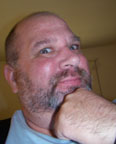
While driving to the location, in the late afternoon sun in Staunton, I was reminded visually of how beautiful our world is. I rediscover that the color green has so many different shades. In that, trees exhibit their splendor, the sky has a variety of blues and the clouds reveal many imaginative shapes. I saw Vincent van Gogh and Albert Einstein in the formations. I then realized I was missing the more simplistic love of all. I did not see ducks, alligators or dragons. Where did they go?
But, as an adult, I was more cognizant to the beauty and wondrous world surrounding me. I was forced to “sniff” the roses and we all should just take the time to “look” and see how many of you are so lucky to enjoy the world. There are many people out there that struggle every day to achieve what is considered normal and toss simple pleasures aside. For instance, this past week most of us wondered, “Where is the sun and its warming rays”? I found one such ray without the sun. That is Helen Cloud of the support group.
I arrived at a beautiful picnic/recreation area located at the Woodrow Wilson Rehabilitation Center. There amidst the scenery and lake was Helen and members of the Brain Injury Support Group. It was a lovely picnic that was scheduled to be held outside of the regular meeting room at the Mary Switzer building. Helen greeted me and introduced me to survivors and their caregivers. Caregivers? Who is the giver? A large percentage of caregivers are family members and the spouses of the survivor.
Instruction Books for Caregivers
Survivors do not come with a set of instructional booklets. Brain injuries come in traumatic and acquired categories. Traumatic is a sudden injury as in a car accident or blunt trauma, for example. My injury is acquired in regards to my multiple strokes. In any case, they are traumatic to the people involved either as family, survivor or family member.
What can I do you might ask? “His mood changes, my mood changes and my world as a caregiver is falling apart.” This is a common feeling, and you are not alone. It is quite normal to feel a great deal of anxiety as a caregiver to a “change” that has occurred to many brain-injured survivors.
I asked Helen, “What made you form a support group”? The answer surprised me, as it was such a reality check. “My husband Bob was a patient, and I need support There were no support groups in the area to assist me.” A staff member at Woodrow Wilson suggested she form a group and gave her the tools to accomplish a needed task.
I enjoyed the picnic and listened to members and guests talk. They seemed relaxed as they gravitated to others having a brain injury. I noticed that caregivers also realized a common bond and were discussing mood changes at first. Common grounds and friendships were blended in the field as the discussion was freely discussed. Exchanging ideas for different computer sites and new therapies presented seized the moment as information is a powerful tool.
Helen undertook a grand task. What she went through made her realize the need for a support group and the results were being applied before my eyes in a friendly manner. I was reminded of a song from the 1970s. “Walk a mile in my shoes.” The walk seemed not to be solo walk anymore. Information is made available thanks to pioneers such as Helen Cloud.
Who, What, Where When
The Staunton-Augusta Co. Area Support Group meets the second Tuesday of each month at the Mary Switzer building Woodrow Wilson Rehab Center campus, Fishersville.
Contact Helen Cloud at 540.886.5420, [email protected].
Monthly meetings include the exchange of ideas and Helen brings in special guests at her meetings to keep all concerned involved. Please help yourself and others by contacting Helen. Get on her mail list that informs you of the meetings and guest speakers. You need not be a caregiver or survivor to attend. Knowledge is power. Get to know people and circumstances they face.
Ask questions, many want to assist you. Knowledge is power.
– Column by Chris DeWald










